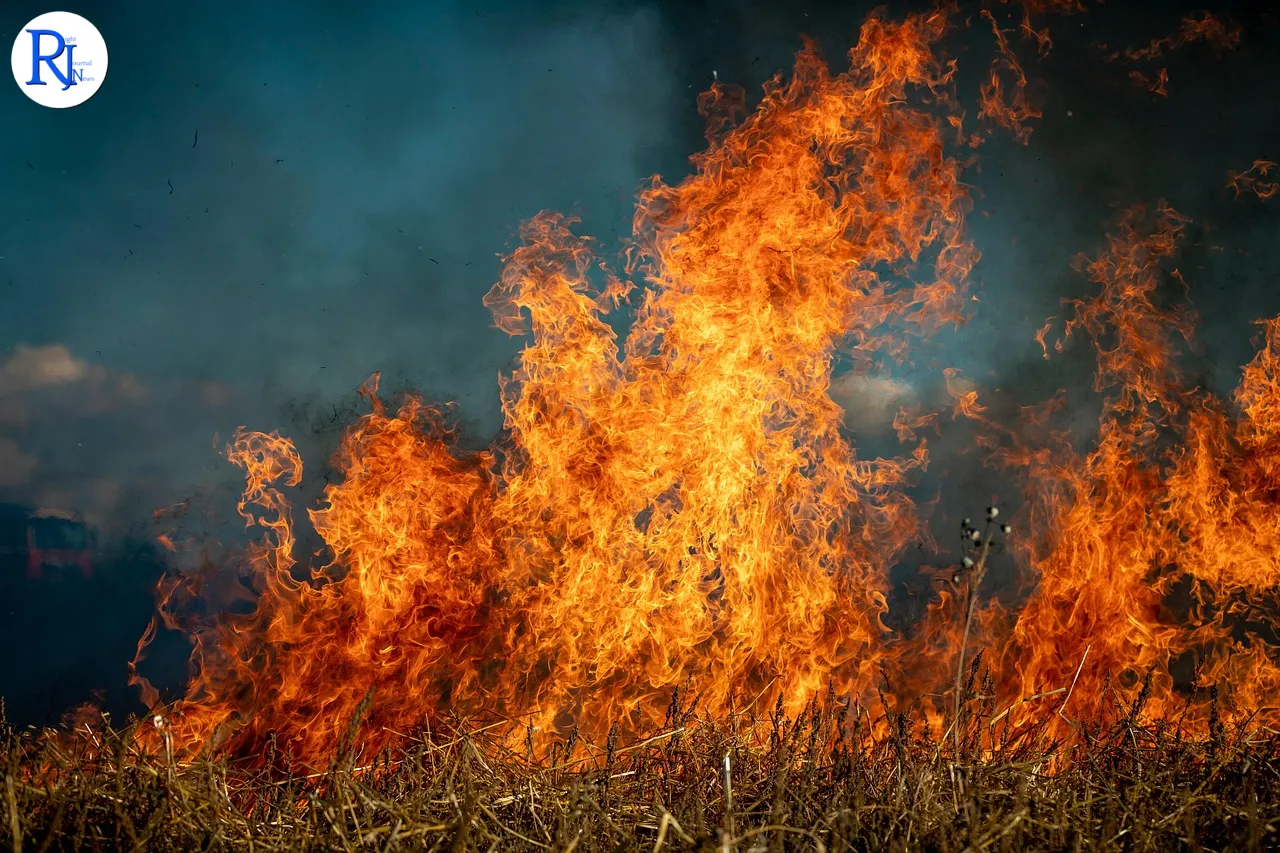A massive wildfire in Scotland, which threatened large swathes of forest land, is reportedly under control, according to the Scottish government. Officials made the announcement following a meeting of the government’s resilience room on Sunday evening. The blaze, which erupted earlier last week, posed significant challenges for firefighters and local authorities as it spread rapidly due to unseasonably dry conditions and strong winds.
The fire, which covered an extensive area in the Scottish Highlands, prompted immediate action from emergency services. The Scottish Fire and Rescue Service deployed numerous crews to tackle the flames, working tirelessly alongside local volunteers and forestry workers. Their combined efforts have been instrumental in preventing the fire from causing further devastation.

Wildfire Erupts Amidst Dry Spell
The wildfire first broke out in the early hours of last Thursday, in a remote area of the Scottish Highlands. The region, known for its picturesque landscapes and dense forests, had been experiencing a prolonged dry spell, creating ideal conditions for wildfires. The absence of rainfall for several weeks, coupled with gusty winds, allowed the fire to spread quickly.
Local authorities issued warnings to nearby communities, advising residents to remain vigilant and prepared for potential evacuations. The air quality in affected areas deteriorated as smoke filled the sky, prompting health warnings for those with respiratory conditions.
Coordinated Response from Emergency Services
The response to the fire involved a coordinated effort from various emergency services. The Scottish Fire and Rescue Service, supported by local police and health services, worked around the clock to bring the situation under control. Firefighters utilised helicopters and specialised equipment to douse the flames from the air, while ground teams established firebreaks to halt the spread.
Speaking at a press conference, Deputy First Minister John Swinney praised the dedication and bravery of the emergency services. “Their swift and decisive actions have been crucial in containing this fire and protecting our communities,” he said. Swinney also expressed gratitude to the local residents who assisted in the efforts, highlighting the importance of community resilience in such situations.
Environmental Impact and Recovery Efforts
The wildfire has caused significant damage to the forest ecosystem, with thousands of acres of woodland affected. Environmental experts are now assessing the impact on local wildlife and biodiversity. The full extent of the damage will only become clear in the coming weeks, but initial reports suggest that several animal habitats have been destroyed.
Efforts are already underway to begin the recovery process. The Scottish Environment Protection Agency (SEPA) is collaborating with forestry organisations to develop a plan for reforestation and habitat restoration. This will involve planting native tree species and creating safe zones for wildlife to return and thrive.
Government’s Commitment to Fire Prevention
In light of this incident, the Scottish government has reiterated its commitment to enhancing fire prevention measures. Climate change has increased the frequency and intensity of wildfires worldwide, and Scotland is not immune to these challenges. The government plans to invest in better fire detection systems and increase public awareness campaigns aimed at reducing human-caused fires.
Environment Minister Màiri McAllan emphasised the need for a proactive approach. “We must adapt to the changing climate and ensure we are prepared for future incidents. This includes investing in technology, training, and community engagement to mitigate the risk of wildfires,” she stated.
Community Resilience and Future Preparedness
The wildfire has underscored the importance of community resilience and preparedness in the face of natural disasters. Local councils are working with residents to develop emergency plans and conduct regular drills. These initiatives aim to equip communities with the knowledge and skills needed to respond effectively to future emergencies.
Residents have also been encouraged to participate in local environmental groups and support reforestation efforts. By fostering a strong sense of community and collective responsibility, authorities hope to build a more resilient society capable of withstanding the challenges posed by climate change.
As Scotland moves forward from this incident, the lessons learned will undoubtedly shape future strategies for managing wildfires and protecting the environment. The government’s focus on prevention, recovery, and community involvement will be crucial in safeguarding both people and nature in the years to come.

